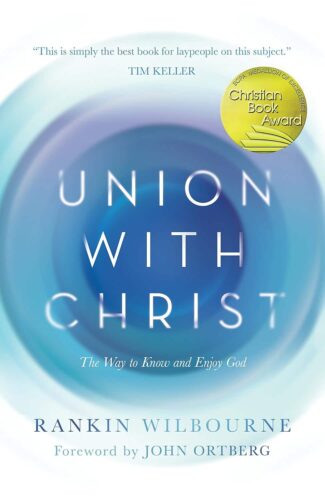The Old Faith Vs Work Argument – Again
Author: Rankin Wilbourne
The unique element of the Christian life is that our lives are no longer our own. They are united with Christ; this morphs and complicates our identities, our knowledge of self, our direction, our life’s purpose and intention. It’s not just about us anymore, it is about Him, and that changes everything. But how? What exactly does union with Christ entail? Does it bring meaning or deny self-hood? Does it contain freedom, or push us into slavery? How does it impact our choices and our understanding? All these questions, and the natural spin-off questions (if we are united with God, why does He allow our suffering) are examined in Rankin Wilbourne’s book Union with Christ.
I came to this book as a pre-assigned reading for the second year of the C.S. Lewis Fellows Program. This program occurs across the United States, and it involves intense study of readings, lectures, and Bible passages alongside mentorship and group sessions, enabling fellows to live for and communicate their faith in Christ. Over the summer months, before the program kicks off in September, we have some pre-readings. I was a bit surprised to see Union With Christ in these readings, since it’s a more basic text that largely concentrates on the ages old (read Catholic vs Protestant) dilemma of salvation through faith vs salvation through works. Rankin’s points are basic, foundational knowledge, explaining what the indwelling of Christ means, the intense benefits of such indwelling, how our personhood expands, and how this impacts our daily life. These are, of course, all vital elements of the Christian walk, but they are also basic, 101 stuff.
When Rankin gets to the faith vs works argument, which honestly takes up most of the book and is a central, circular theme, the waters get muddy. The idea is easy, but the explanation falters and becomes obfuscated. We’re saved by faith in God BUT, that doesn’t mean we can believe without the second step, allowing that belief (and the necessary union with Christ that it brings) to permeate our entire beings and inform our actions (which is where the works come in.) The two are really one; they are different, equally necessary expressions of our union with God. I’m still surprised that this is a topic that confuses so many people. Logic dictates that you cannot buy your way into Heaven by following the motions without the necessary heart-knowledge, the faith and belief in Christ. Logic also dictates that if you love Christ and believe in Him, you’ll do the next step and do what He says. Are multiple circular chapters necessary to reinforce Christianity 101? I suppose it depends on why you are coming to this book and where you are on your journey. For a new believer, I’d say this has a lot of quality content, although focus and conciseness would have helped tie it all together more. For the more mature believer, there is really nothing new here and while the writing is conversational and enjoyable, there must be more organized books out there.

Image by Arnie Bragg from Pixabay
Where Rankin excels, however, is in the devotional aspect. His words capture the passion of Christianity, the gloriousness of the changes, and they refresh our desire to be closer to Christ, to stoke the fires of our union with Him, to recenter ourselves, to see the grace and the power in our connection. The first portions of the book capture this cadence of dedication and the goodness of this relationship with God in a way that revitalizes our desires and refreshes our foundational knowledge. They make us want to worship. They remind us of the passion that comes with our first steps towards God.
The last several chapters work as a somewhat loose summary, bringing it all home. They, however, lose some of the steam and passion of the narrative. Part of this is because of the repetitive nature, especially the faith vs works loop, and part of this is the similarity of themes which overlap so much that we really don’t need the separate chapters to tease apart synonymous words and meanings. The chapter on suffering is admittedly weak, and the other chapters (the art of abiding, the means of abiding, and the secret of abiding) reiterate how we take that knowledge of living in Christ by having both faith and exhibiting works, essentially becoming more Christ-like. None of the logic here is flawed, but it is all repetitive. For new believers, I can see how this would be a helpful book, but for those of us with many theology books under our collective belts, this one doesn’t especially stand out. The ideas are standard and unquestionable, but the presentation is a bit sloppy, and the theme could have been better drawn together in a shorter manner. Recommended, but not a favorite.
– Frances Carden
Follow my reviews on Twitter at: https://twitter.com/xombie_mistress
Follow my reviews on Facebook at: https://www.facebook.com/FrancesReviews
- Book Vs Movie: The Shining - April 6, 2020
- Thankful For Great Cozy Mysteries - December 13, 2019
- Cozy Mysteries for a Perfect Fall - October 20, 2019



